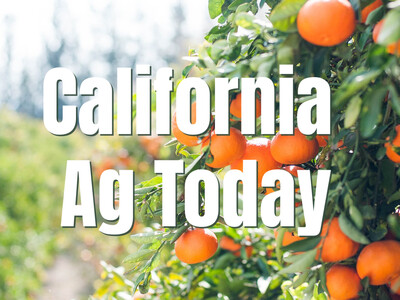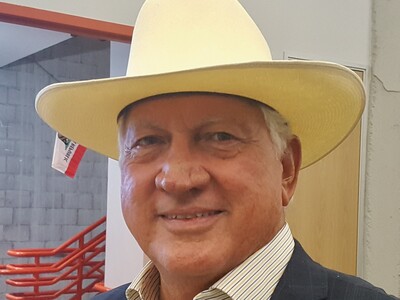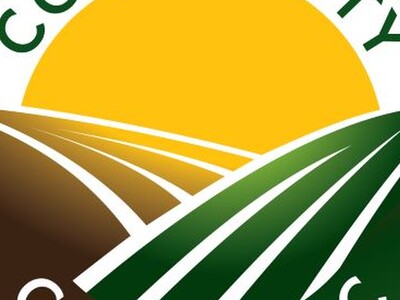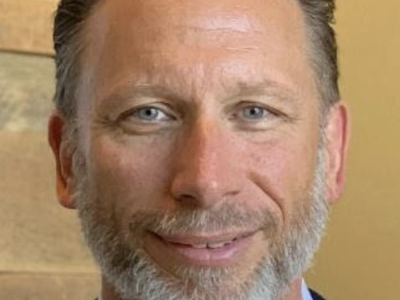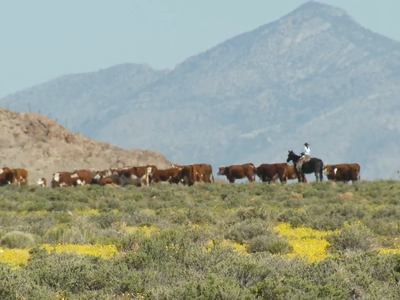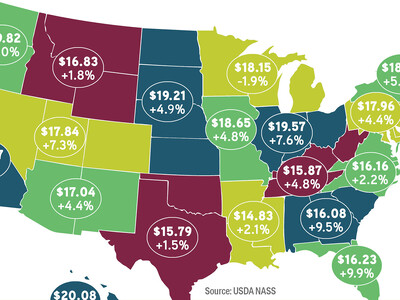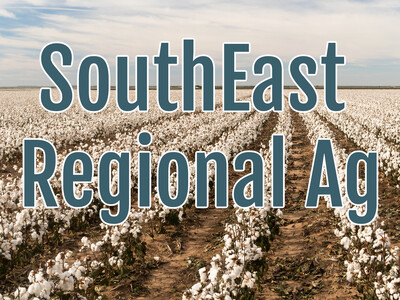2024 AFBF Convention
Idaho Farm Bureau Federation sent a much larger than normal delegation to American Farm Bureau Federation’s annual convention this year and it was noticed.About 150 IFBF members from around the state attended the 105th Annual American Farm Bureau Convention, which was held Jan. 19-24 in Salt Lake City. That was about 50 percent more than normal.
“Everywhere you went during the convention, you were seeing Idaho people,” said Idaho Farm Bureau Federation Vice President Richard Durrant, who farms in southwestern Idaho. “We definitely had a lot of people there.”
“Our members are the epitome of what Farm Bureau is and to see the biggest number of Idahoans we’ve ever had at AFBF convention just shows how strong our organization is,” said Idaho Farm Bureau Federation CEO Zak Miller. “To be 50 percent above normal in turnout was just awesome.”
Making the large Idaho turnout even sweeter was the fact that the Big Idaho Potato Truck made an appearance at the trade show part of the convention and was a big hit. A steady line of convention participants stopped to have their picture taken in front of the giant spud.
“That was awesome,” IFBF member and southeast Idaho farmer Stacy Burmester said about the appearance of the four-ton Idaho potato. “What a way to showcase Idaho.”
IFBF President Bryan Searle, a spud farmer from southeast Idaho, said the giant potato created a lot of buzz at the convention.
“People were in awe of that,” he said. “I had multiple comments on that.”
About 4,500 people from the various state Farm Bureaus across the nation attended the 2024 AFBF conference, which included competitions for young farmers and ranchers, workshops, guest speakers, a trade show, and many other events.
“There are lots of opportunities to learn at the convention,” said Durrant.
Burmester, who has attended a lot of AFBF annual conventions, said one of the biggest benefits of the event is being able to interact with other farmers “who have the same stories, the same trials you have … and they are just trying to make a living, like you are. Sometimes, you can find solutions from them to help with your own farm.”
“It’s not just your local farmers,” she added. “You’ve got farmers from around the nation. They have the same passion and values you have and they are good people.”
Durrant said sharing some “elevator talk” – those fleeting moments when you get to say hi to a Farm Bureau member from another state while riding up or down the elevator – and getting to know other producers, albeit for just a moment, is one of the highlights of AFBF conventions.
“Those ‘elevator talk’ moments are short and sweet but it’s definitely good to know we have a united organization of people from across the U.S. to rely on to help us deal with all the various issues facing our industry,” he said.
Searle agreed with Durrant and encouraged the IFBF delegation to meet and get to know Farm Bureau members from other states.
“Enjoy the convention; take time to meet people from across the United States,” he told them during a special breakfast for the Idaho delegation.
The theme of this year’s convention was “New Frontiers” and American Farm Bureau Federation President Zippy Duvall reminded participants during one of the convention’s general sessions that AFBF has six million members in 2,800 counties.
“We reach new frontiers together, one step at a time,” he said. “There may be some obstacles we can see and there may be some obstacles that we can’t. But we press on (and) we press on with courage.”
Duvall told Farm Bureau members that “it takes boldness to step up, to climb that mountain, not knowing what might be on the other side. But if we don’t persevere, we’ll miss out on some amazing opportunities.”
On a personal note, Duvall spoke about mental stress in the agriculture industry and told members that “you don’t need to go through hard times alone and Farm Bureau’s going to be right there with you. That’s what Farm Bureau is all about. That’s why we come together for each other, in our communities, because we care and we know that we are stronger together.”
A big focus of the 2024 convention was rallying Farm Bureau members across the United States to keep pressing for a new farm bill, and sooner rather than later.
“We achieved the Farm Bill extension, but we need to be even louder,” Duvall said. “We also need … farmers to urge (Congress) to pass a new, modernized farm bill and that’s just what we’re going to be asking you to do this week.”
During general sessions, participants were reminded by several speakers of the important role they play in this country.
“I appreciate the opportunity of being in here to visit with America’s farmers and ranchers,” U.S. Secretary of Agriculture Tom Vilsack told Farm Bureau members. “I think at the foundation of our economy and our value system is American agriculture; the farmers and ranchers and producers across this great country that work hard every single day to provide extraordinary diversity of product. I think it’s important for us to recognize as a country the incredible contribution that is made by farmers and ranchers….”
Vilsack said the value system of the country was represented at the convention.
“It’s a value system that rewards hard work, that understands that nothing is given, that everything is earned,” he said. “It is a value system that understands and appreciates the concept of community.”
Speaker and author Jack Uldrich encouraged agricultural producers to think the unthinkable, especially when it comes to new and emerging technologies.
“We have to imagine unimaginable futures,” he said. “There’s a world of technology coming at us. You have to use your hands and hearts to probe these new frontiers.”
Rep. Frank Lucas, R-Okla., who was presented with AFBF’s Distinguished Service Award, said Farm Bureau members understand it is their responsibility to ensure the country is able to feed not only itself, but the world.
“We owe it to the men and women who came before us and to the farmers and ranchers who will carry on after we are gone to leave American agriculture stronger, more resilient and ready to face the challenges ahead,” said Lucas, a fifth-generation Oklahoma farmer.
Three young producers from Idaho competed in the various Young Farmer and Rancher competitions during the AFBF convention. All three won their respective competitions during IFBF’s annual convention in December.
Braxton and Jamie Crapo, who farm in Parker, competed for the Achiever Award, which recognizes young farmers or ranchers who have excelled in their farming or ranching operation and honed their leadership abilities.
Achiever award contestants are evaluated on a combination of their farming operation’s grown and financial progress and their leadership both within Farm Bureau and outside of the organization.
Kevin and Shelby Andrus, who ranch in Lava Hot Springs, competed for the Excellence in Agriculture Award, which spotlights young Farm Bureau members who are agricultural enthusiasts but have not earned a majority of their income from an owned production agriculture enterprise in the past three years.
Competitors for the Excellence award are judged based on their understanding of ag issues as well as their leadership experiences and achievements.
The Achiever and Excellence awards are both part of IFBF’s Young Farmers and Ranchers program, which is open to Farm Bureau members between the ages of 18 and 35.
Cole Lickley, who ranches in Wapello, finished third in the AFBF Discussion Meet, another YF&R competition which helps young producers hone their public speaking and problem-solving skills during a competition that is meant to simulate a committee meeting rather than a debate.
The contestants, who moderate themselves and engage each other in a cooperative manner, discuss a pre-selected topic and are judged based on constructive criticism, cooperation and communication.
During each of the four rounds Lickley competed in, a sizable Idaho contingent showed up to support him.
During the third round, Lickley’s group was asked how Farm Bureau can help address water management challenges and seek long-term solutions for farmers and ranchers.
Lickley pointed out the AFBF policy book has more than 30 pages of policy related to just water and there are more than 400 instances where water is referenced in the book. For context, he said, agriculture is referenced about 200 times.
“Water is and will continue to be one of the greatest challenges facing U.S. agriculture,” he said during that round. “While water issues vary depending on geography and use, we all need to be engaged on this important topic in order to find long-term solutions.”
IFBF member and southeast Idaho farmer Fred Burmester said he enjoyed following Lickley’s march to the final four of the Discussion Meet competition.
“I was really impressed with how talented the competitors are,” he said.






